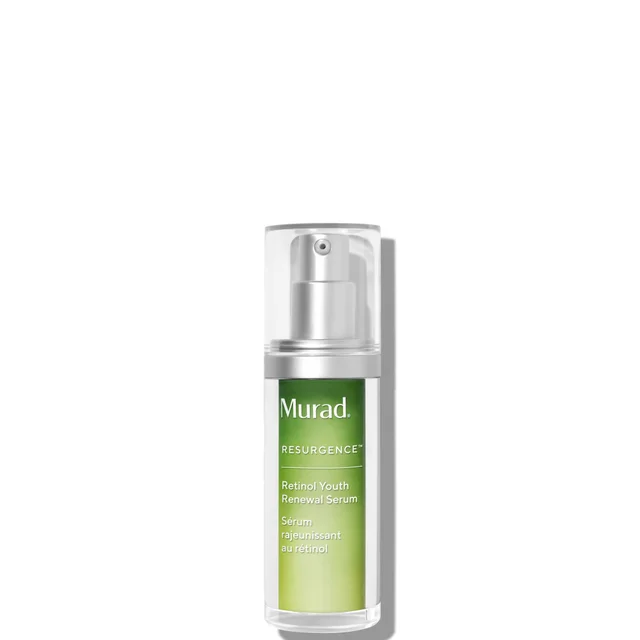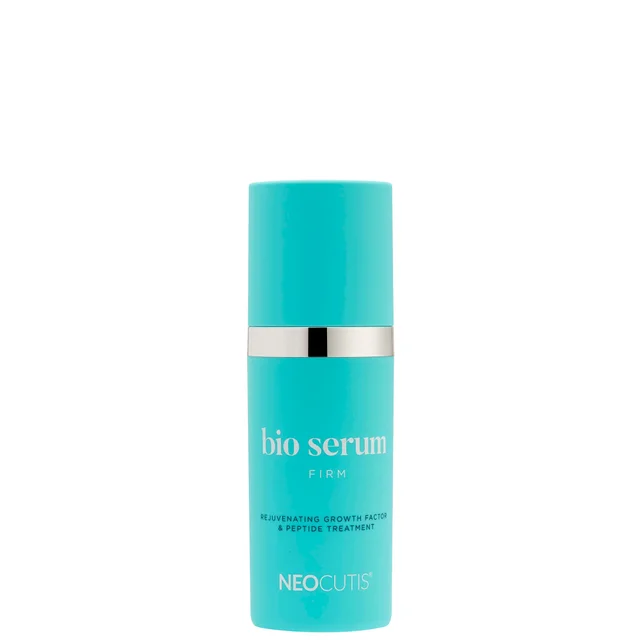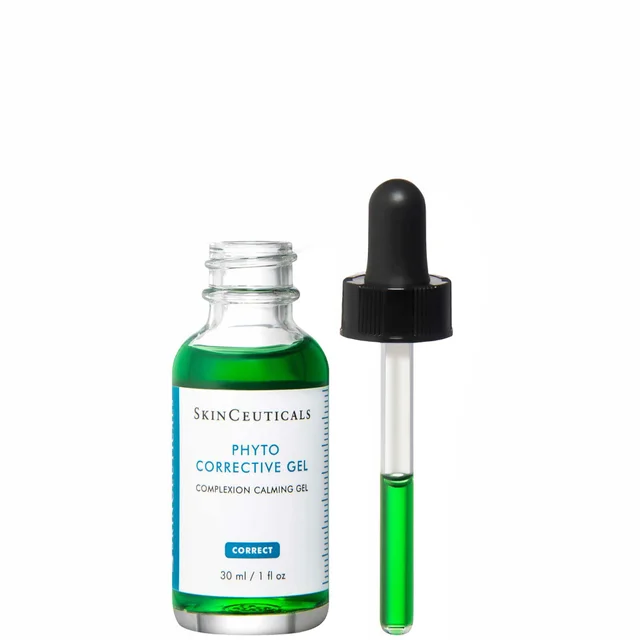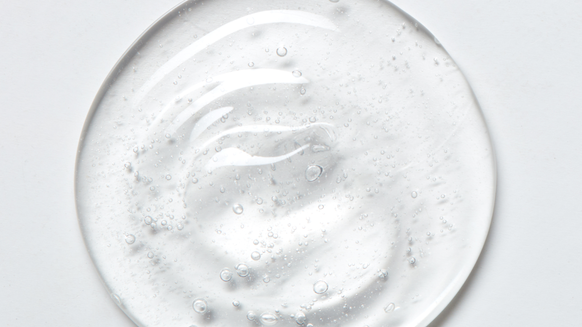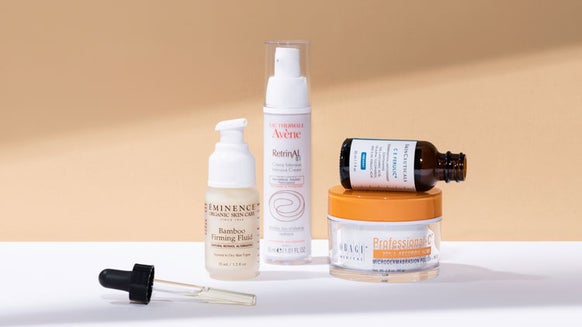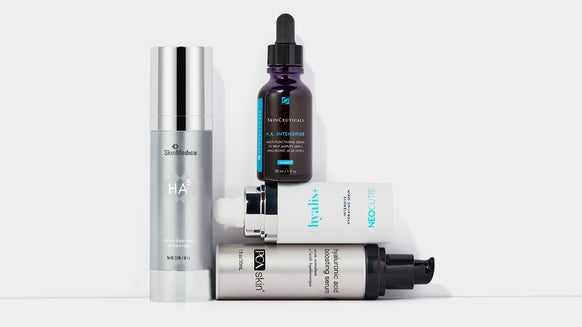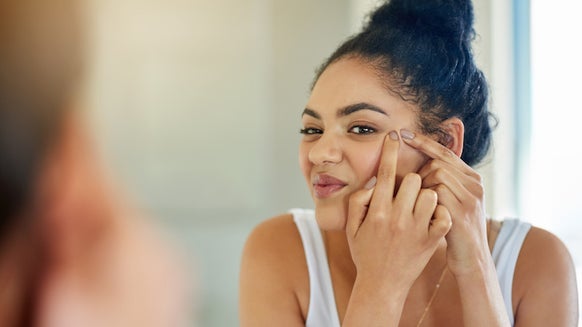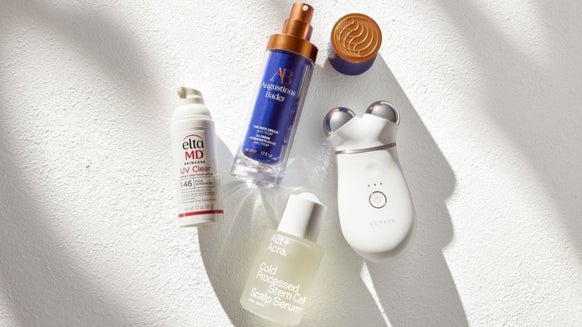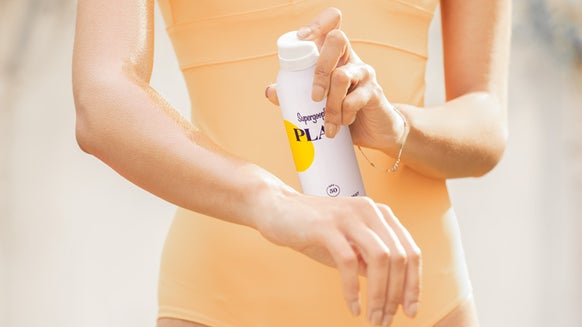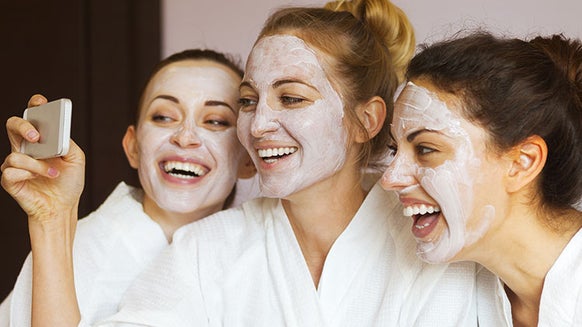What Are Face Serums? Our Beauty Editor Shares the Ultimate Guide
Any good skincare routine should include the staples: cleansers, moisturizers, serums, and SPF. Serums are the cornerstone of a solid routine and can do almost anything to improve the skin. These concentrated skincare elixirs are a must for tackling your most pressing skincare needs and doing the heavy lifting and choosing the right one can make all the difference in good and great skin. Ahead, we break down everything there is to know about using a facial serum and how to find the best face serum.
Table of Contents:
- What Are Face Serums
- Different Types of Face Serums
- The Key Ingredients in Face Serums
- What Does Serum do to Your Face?
- How to Incorporate Face Serums Into Your Routine
- The Bottom Line
What is a Face Serum?
Despite all the skincare educational content out there, a major question remains: What is face serum, and what does a serum do for your face? From adding moisture to providing beneficial active ingredients and skin-friendly nutrients, serums can target a specific need. As a key step in building a skincare routine, serums often pack a more powerful punch compared to lesser potent products.
Lightweight serums typically contain active ingredients in high doses, including vitamins A, C, and E, glycolic, kojic, lactic, salicylic, and ferulic acids, peptides, resveratrol, hyaluronic acids, niacinamide, and retinol. While some may mistake a serum for a moisturizer, the two are entirely different. A serum for the face is far more than yet more potent. It is often used to address a specific skin concern, such as wrinkles, acne, or hyperpigmentation, depending on the main ingredients in the formulation. Since the active ingredients are typically in larger amounts and higher doses, they can better penetrate the skin for more visible results.
Different Types of Face Serums
Some of the more popular types of face serums include:
Anti-aging serums: stimulate collagen and elastin to help fight the common signs of aging and defend against free radical damage Discoloration serums: brighten the skin to improve its overall tone Hydrating serums: add moisture to the skin for a younger, plumper look Acne serums: shrink pimples and diminish acne scars Retexturizing serums: improve the skin’s overall texture and appearance
The Key Ingredients in Face Serums
Many different ingredients have made their way into face serums, some of which you might recognize from other skincare products. Commonly used active ingredients in serums typically include:
Retinol: Retinol is known for its anti-aging properties. It helps promote collagen production, speeds up cell turnover, and can also reduce the appearance of fine lines and wrinkles. Retinol is super effective against acne by preventing the buildup of dead skin and clogged pores. Vitamin C: Vitamin C (also known as L-Ascorbic acid) is a powerhouse antioxidant that does it all. Not only can vitamin C defend the skin against free radical damage, but it also helps stimulate collagen, brighten the skin, and improve the skin’s overall tone and appearance. Hyaluronic acid: A staple moisturizing ingredient, it holds up to 1,000 times its weight in water, making it an excellent hydrating agent. By hydrating the skin, it works to plump up fine lines and wrinkles for younger-looking skin.Niacinamide: This vitamin B3-derived ingredient helps improve the skin’s barrier function while reducing inflammation and minimizing the appearance of enlarged ones. Niacinamide is often recommended for erasing stubborn hyperpigmentation, too. Peptides: Consider a peptide if retinol is too strong for your skin. It works to stimulate new collagen production while improving elasticity.
What Does Serum Do for Your Face?
Using a face serum can offer several different skin benefits. Not only do face serums absorb quickly on the skin, but they are also a must for those who are short on time when it comes to skincare. Based on the ingredients, a serum can also be beneficial in calming and soothing sensitive skin. And their lightweight fluidity makes them suitable for those with oily and acne-prone skin since the products aren’t nearly as heavy as creams—there’s also less potential for the pores to become clogged with serums. Drier skin types can benefit from a serum but usually must still incorporate a more traditional moisturizer.
Different serums have different targets to correct skin concerns like fine lines, wrinkles, discoloration, and dryness. The ingredients within a serum will dictate what they can best help with. Still, most serums have anti-aging and protective benefits since many feature antioxidants in their formulations to help prevent premature aging.
Since serums contain a high concentration of active ingredients, you’re likely to see more visible results, perhaps even faster, than other skincare products.
How to Incorporate Face Serum into Your Routine
Adding a face serum to your skincare care routine is simple. It's best to use a serum daily unless the product’s instructions say otherwise. You can also use different serums for different skin concerns and alternate between serums for daytime and nighttime use.
When applying a face serum onto the skin, it's best to apply it after cleansing and toning and before any other products, especially heavier ones. You don't need more than a few drops of a serum, and make sure to apply it all over the face and down the neck. Then, after applying a face serum, continue with your regular skincare routine, and finally, lock in with a good moisturizer, which will help prevent any moisture from slipping out and prevent skin from feeling dry. Top it off with sunscreen.
You can also layer serums with one another to provide maximum benefit. There's no wrong way to layer your serums, but make sure that the ones you are combining don't have ingredients that will cancel each other out or cause redness, dryness, or irritation.
Shop the Best Face Serums
1. Murad Retinol Youth Renewal Serum
Key Ingredients: Retinol, antioxidants, peptides and stem cells
Skin Concerns: Fine lines, Wrinkles, Sagging
Serum Type: Anti-Aging
The best anti-aging face serums out there feature ingredients that speed up cell turnover and improve your skin’s elasticity. Antioxidants, such as vitamin C, help fight free-radical damage that leads to premature aging. Some also offer skin-firming benefits, making lines and pores less visible.
2. Neocutis BIO SERUM FIRM
Key Ingredients: Peptides, human growth factors, sodium hyaluronate and glutamines
Skin Concerns: Loss of Firmness
Serum Type: Collagen-boosting
For skin that's lost its resilience, reach for a collagen-boosting serum that features the restorative properties of peptides. Known for its ability to refine tone and texture, peptides also improve firmness and elasticity, unveiling a revitalized complexion.
3. iS Clinical White Lightening Serum
Key Ingredients: Vitamin C, arbutin, kojic acid, licorice extract and alpha hydroxy acids
Skin Concerns: Hyperpigmentation
Serum Type: Brightening
Depending on the active ingredient, brightening serums work by either inhibiting some steps along the melanin pathway (different ingredients inhibit different steps along the pathway, not just production) or by accelerating cell renewal, improving skin tone and texture and illuminating a dull complexion.
4. PCA SKIN Hyaluronic Acid Boosting Serum
Key Ingredients: Hyaluronic acid, essential fatty acids, ceramides and niacinamide
Skin Concerns: Dry Skin
Serum Type: Hydrating
Hydrating serums offer a two-pronged approach to restoring your skin’s moisture level. First, they repair your skin barrier to prevent moisture loss. Then they bind and seal moisture to your skin. Use this to boost the effects of your moisturizer, or try it alone if you have oily skin.
5. SkinCeuticals Phyto Corrective Gel
Key Ingredients: Herbal extracts, chamomile, aloe and calendula
Skin Concerns: Redness Prone-Skin
Serum Type: Calming
The Bottom Line

Elise Minton Tabin is an award-winning beauty journalist, editor, and beauty expert with more than 16 years of experience. She previously held the title of Executive Beauty Editor at NewBeauty magazine, where she reported on beauty, plastic surgery, anti-aging, health and wellness. She was also instrumental in the launch of the beauty supplement brand Hush & Hush. A self-professed beauty junkie and retinol and sunscreen pusher, Elise knows what’s new, what works and who’s the best to go for every procedure under the sun. Follow Elise on Facebook, Instagram, and on her beauty blog, elisetabin.com
